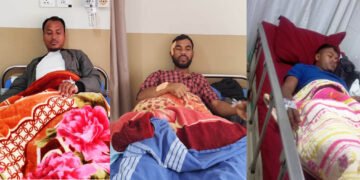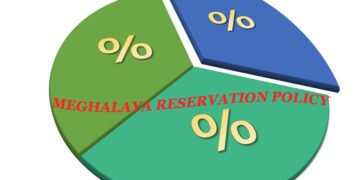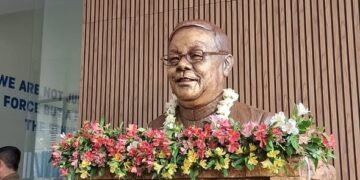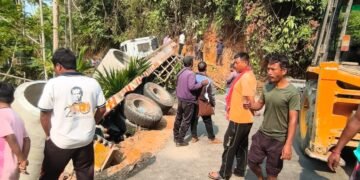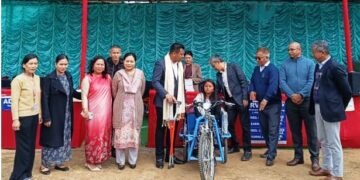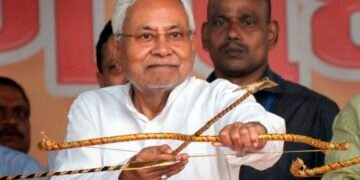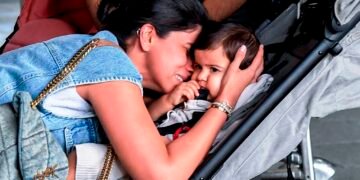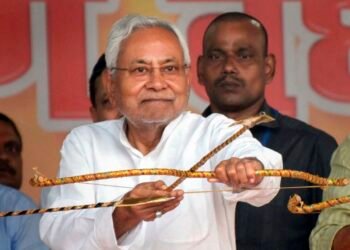The ruling of the Supreme Court yesterday that no individual can be forced to get Covid-19 vaccine has come as a morale booster to anti vaccination campaigners in Meghalaya.
It may be mentioned that Awaken India Movement (AIM) Meghalaya chapter has in the recent past organised protests against compulsory Covid vaccination by the Health Department on grounds that it violates individual freedom and freedom of choice.
Many government departments have also issued directives making it mandatory for employees to take the vaccine.
However, the Supreme Court ruling on May 2 has brought relief to those opposed or unwilling to take the Covid vaccine.
“With respect to the infringement of bodily integrity and personal autonomy of an individual considered in the light of vaccines and other public health measures introduced to deal with the Covid-19 pandemic, we are of the opinion that bodily integrity is protected under Article 21 of the Constitution and no individual can be forced to be vaccinated. Further, personal autonomy of an individual, which is a recognised facet of the protections guaranteed under Article 21, encompasses the right to refuse to undergo any medical treatment in the sphere of individual health,” said a bench of Justices L Nageswara Rao and B R Gavai.
“Nobody can be forcefully vaccinated as it would result in bodily intrusion and violation of the individual’s right to privacy, protected under Article 21 of the Constitution of India. Personal autonomy was read into Article 21 by this Court in Common Cause (supra), by placing reliance on National Legal Services Authority v. Union of India 32, and Aruna Ramachandra Shanbaug (supra). This Court, in Common Cause (supra), emphasized the right of an individual to choose how he should live his own life, without any control or interference by others,” the top court said.
The Supreme Court also said that persons who are keen to not be vaccinated on account of personal beliefs or preferences, can avoid vaccination, without anyone physically compelling them to be vaccinated.
“However, if there is a likelihood of such individuals spreading the infection to other people or contributing to mutation of the virus or burdening of the public health infrastructure, thereby affecting communitarian health at large, protection of which is undoubtedly a legitimate State aim of paramount significance in this collective battle against the pandemic, the government can regulate such public health concerns by imposing certain limitations on individual rights that are reasonable and proportionate to the object sought to be fulfilled,” it added.
The verdict by the Supreme Court came on a Writ Petition (Civil) No. 607 of 2021 filed by Dr. Jacob Puliyel, a former member of the National Technical Advisory Group on Immunisation. He was represented by senior lawyer Prashant Bhushan.
The plea had challenged vaccine mandates issued by various state governments, raised apprehension on children vaccination, and raised non-disclosure of segregated clinical trial data in public domain as well, improper collecting and reporting of adverse effects of Covid vaccines.

